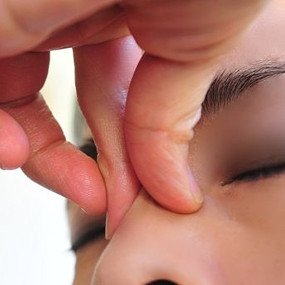Nasal Obstruction / Deviated Septum
There are a handful of problems and conditions that can affect both the nose and sinuses, including infections, allergies, and deformities. One of the most common conditions is a deviated septum, which is what occurs when the wall that separates the nostrils (called the septum) is displaced. The septum is made of cartilage and bone, and it is used to help support the nose and mucous membranes. Another important role of the septum is to help encourage air flow. When the septum becomes displaced, it may cause one nasal passage to become smaller than the other, which affects breathing in some extreme cases. A deviated septum often occurs as a result of injury to the nose, or it could be due to underlying sinus problems, snoring, or sleep apnea. Your ENT doctor will be able to determine whether or not your septum is deviated with a CT scan and thorough examination of the nose. Once your ENT doctor has made the diagnosis, he will then go over the various treatment options with you.
| Symptoms | A deviated septum occurs when the septum is shifted further away from the middle of the nose, diminishing the flow of air from the nostril to the back of the nose. The most common symptoms of a deviated septum are as follows:
If you are experiencing any of the above symptoms, it may be a good idea to contact your ENT doctor in Arlington, Dallas or Fort Worth to see what your options are. |
| Effects | A deviated septum is not only an annoyance, but it can actually cause a handful of discomforts and pain. A deviated septum may cause one or more of the following:
|
| Treatment | If you are suffering from a deviated septum, surgical correction will be recommended by your ENT doctor. This procedure is also called septoplasty or submucous resection surgery. The type of surgery you will need will depend upon the level of damage or shift that has occurred in your septum. Your ENT doctor will be able to determine which is the best treatment path for you upon further examination. He will also provide you with a set of post-care instructions to ensure your recovery is smooth. Sometimes, taking breathing classes, learning and practicing yoga, or meditation techniques can help clear air passages and help with breathing. If you go that route, though, it can depend on how often you practice yoga or breathing exercises to feel the benefits. If you have any more questions about a deviated septum, its symptoms, or what treatment options are available, please feel free to contact our ENT clinic at any one of our locations in Arlington, Dallas or Fort Worth. |

